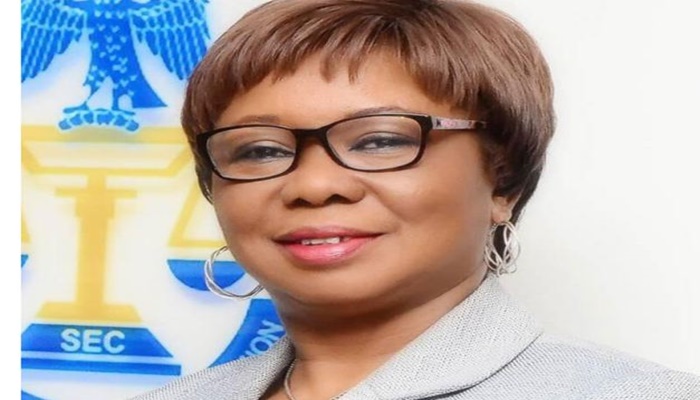
The Securities and Exchange Commission (SEC) is working with the Nigerian Educational Research & Development Council (NERDC) to develop a capital market education curriculum for senior secondary schools in the country.
The acting Director-General of SEC, Mary Uduk, said this was part of initiatives by the commission to promote early education and enlightenment of investors in the Nigerian capital market to enhance their ability to make informed investment decisions.
Ms Uduk was speaking at the planning and writing workshop for the development of the Capital Market Studies Curriculum (CMSC) for Basic and Senior Secondary Schools levels in Lagos on Monday.
The commission, she said, has always been in the vanguard of promoting financial literacy considering its importance for students and the need for them to imbibe the culture of financial literacy on the operations of the capital market.
The partnership with NERDC, the DG said, was to actualise the capital market literacy initiative, as part of the commission’s effort to implement one of the cardinal programmes under the 10-year Nigerian Capital Market Master Plan.
She said the programme began with the signing of a memorandum of understanding between SEC and the NERDC in 2016, to develop a stand-alone capital market studies (CMS) curriculum for infusion into Basic and Senior Secondary Schools.
“I am happy to announce that, after a successful workshop for contents selection, the stage is now set for the planning and writing of the stand-alone curriculum.
“The commission recognises the efforts required for other stages of the programme and remains confident that with the active support and commitment of our stakeholders we will complete this project,” she noted.
Ms Uduk said the commission recognises efforts required for other stages of the programme, saying with the active support and commitment of all interest groups the project would be completed.
Executive Secretary of NERDC, Ismail Junaidu, noted the strategic importance of the capital market, particularly connecting the financial sector with the real sector of the economy.
He said the capital market also facilitates real sector growth and economic development as well as increases the proportion of long-term savings channelled to long-term individuals/households.
Also, such savings are equally channelled into long-term investments and fulfil the transfer of current purchasing power from surplus sectors of the economy to deficit sections.
According to Mr Junaidu, a country’s economic growth should promote an efficient and effective financial sector that pools domestic savings and mobilises capital for productive purposes.
He said an economy that is not growing can hinder stock market development, and engender such problems as low capitalisation, which limits the savings function of the stock market, with illiquidity of the market as a disincentive to investment.
Mr Junaidu described capital market education as a strategic imperative requiring a comprehensive curriculum run by competent academic and professional personnel.
Early involvement of the youth in capital market studies, he said, could derive profit, growth and perhaps be the much-sought antidote to over-dependence on paid employment.
He said one of the reasons SEC approached NERDC to mainstream capital market issues into the national curriculum was the prospects of creating employment opportunities.
The 10-year capital market master plan requires SEC to inculcate the culture of financial literacy and specifically to introduce capital market studies (CMS) into the curriculum at all levels of education, to encourage CMS as a degree programme in the tertiary institutions.
Credit: Premium Times.






